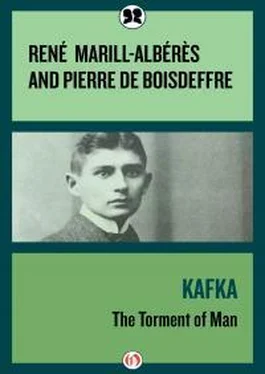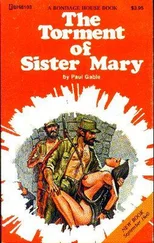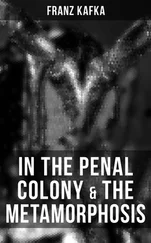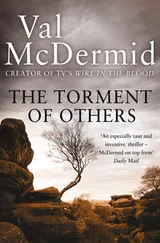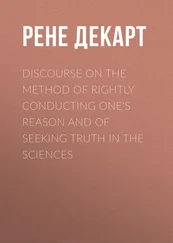To win more freedom for himself, Kafka gave his notebooks to Milena. He no longer needed to keep the Diary: like Proust, he was “a memory come to life”—and this “accounts for my insomnia.” His health failed; he had known since the summer of 1917 that he had tuberculosis. “I have let my body decay. I wanted to avoid any distraction, to remain aloof from the lusty life of a healthy, useful man. As if despair and sickness were not at least as distracting!” When he goes for a walk he looks at people with mixed condescension and envy: they have trivial occupations which lead them nowhere, but they live and convey the illusion of being happy. Keeping his madness buried in his head “as in a shroud,” the solitary walker is certain to envy the happiness of the couples he meets, even though he realizes clearly “that in one of these happy unions he would despair.”
Systematically, year after year, Kafka had been destroying himself. The dike was about to break. What would happen? Now he knew: he would have to die to discover Canaan. Waiting for this last act, he was overcome by a feeling of absolute distress. Alive, he “does not come to the end of life”; where is the helping hand that could “dispel some of the despair brought on by his destiny”? At the beginning of 1920, during the course of his medical treatment at Merano, he hoped that this hand would be Milena Jesenská’s. But if he grasped it, he dared not cling to it, he capitulated in the face of his fear and plunged again into his loneliness, even as his love drew from him heart-rending cries.
… And I love you, foolishly, as the sea loves the fine gravel in its depths; my love is no less possessive.… But when I say that you are the one I love most, this is perhaps not love … love is the knife that I turn over in my wound.… Why speak to me, Milena, of a common future which will never be.… Few things are certain, but one is that we shall never live together, in the same house, elbow to elbow at the same table—never; not even in the same town. 2
Condemned by the vagaries of his sickness and his relapses to wander from seaside resort to sanatorium, from the Tatra Mountains to Prague and from Spindelmühle to Müritz, in 1921 and 1922 he divided his time between the Czech capital and the mountains. “Collapse, impossibility of tolerating life or more exactly the course of life.” At the age of forty he would find time to rest for a moment: now he knew he would be unable to do so, for fear of the future cast a terrible cloud over the present. He was one of the uneasy Jews of the Western world who have never known a minute’s peace.
Nothing is given to me, I have to acquire everything, not only the present and the future but also the past, the thing every man receives gratuitously as his lot; that too I should acquire, and it is the hardest task; if the earth turns to the right—I do not know whether it does—I should turn to the left in order to recapture the past. But I have not the least power to satisfy these obligations, I cannot bear the world on my shoulders, which hardly endure the weight of my winter jacket.… It is sheer folly for anyone to try to pull through alone—folly paid with folly. 3
Yet his “folly” was not without remission. In the summer of 1923 he was in Müritz on the Baltic, having gone there with his sister and nephews. There he discovered a holiday colony of the Berlin Jewish People’s Home; he took a lively interest in the work of this group—indeed, in everything having to do with Zionism. It was there also that he met Dora Dymant, a Polish Jew who had been brought up in the Hasidean tradition and had escaped from her strict patriarchal family, ruled by the intangible Law of Moses. Having gone first to Breslau and then to Berlin, she had two apparently contradictory passions: the theater and Hebrew. Franz, who had applied himself to the study of Hebrew, read aloud with her long passages from the Book of Isaiah. Soon a new love arose; the last rays of autumn came to brighten his life.
Kafka decided to try to acquaint himself at last with a normal life. He was ready to try with Dora the experiment in conjugal living that he had refused to undertake with Milena. That she consented is probably due to the fact that she was Jewish whereas Milena was not. “Without ancestors, without marriage, without descendants, with a violent desire for ancestors, marriage, descendants,” he tried to create a shelter for want of roots .
Undeterred by the objections of his family, he lived with Dora in the suburbs of Berlin, first in Steglitz, then in Zehlendorf. Was he to know at last “the happiness of married men, young and old” (“happiness which is beyond my reach and which, even if it were not, I would find unbearable … yet the only happiness on which I would like to sate myself”)? In any case, he seemed calmer, more relaxed, almost happy, and he had eluded his demons. “They search for me but do not find me, for the moment at least.” Max Brod writes, “I saw that Kafka was truly happy with his companion.” He even managed to sleep well, “an unheard-of novelty in these years.” Writing, which a few weeks earlier had called for superhuman efforts, again became simple if not effortless. He prepared for publication in short order “The Burrow,” “Josephine the Singer,” “Investigations of a Dog,” and turned over to the publisher the four short stories in A Hunger Artist (naturally it was Max Brod who found a publisher for him—the Schmiede publishing house).
It seemed that he had found salvation. For the first time in his life he had discovered that he could live with another person, enter into a conjugal relationship with the one he loved. This was an extraordinary revelation which would have filled him with pride if he had been capable of pride. But his demons returned, more wicked and more numerous. They made him pay for his unseasonable happiness. They were announced by a thousand signs: first the harsh winter of 1923, when the ravages of the cold were added to the ravages of inflation.
Ruined by defeat, humiliated by the occupation of the Ruhr, shaken by riots, the Weimar Republic staggered under the successive blows of communists and fascists. On November 9, 1923, following the red uprisings in Hamburg, Hitler tried but failed to bring off the Munich Putsch . But this was only a reprieve: ten years later, the flag tinged with Bauriedl’s blood—the Blutfahne —was to be venerated as a talisman. 4To be sure, by issuing new notes—Rentenmarks—Schacht the magician saved the German economy, as Erhard was to do twenty-five years later. But the middle classes were ruined. Kafka shared their plight: rent, food, his physician’s fees went up faster than his meager income, and his royalties were soon exhausted. Still, he distributed to those whose need was greater than his own the provisions sent to him by his family. The sanatorium, the clinic, and even the hospital were too expensive. One would have to “earn gold-marks in order to live here.”
For years he had been having a temperature in the evening. He finally came to accept his sickness and hoped that he could manage to live with it. Had he not already endured the chains of his job, the test of loneliness, and the anguish of creation? The sanatorium was too expensive, that was all; he must not even think about it any more. But Kafka’s family, alerted by Max Brod, became alarmed, and on March 17, 1924, his friend personally took him to Prague, where his parents opened their arms to him. The writer ceased to be “the Father’s equal” and became once again the delicate child that he had been for so long. This he felt as a defeat, as the failure of all his plans for achieving independence. “Protected and exhausted,” he did not even have the strength to run away.
Читать дальше
